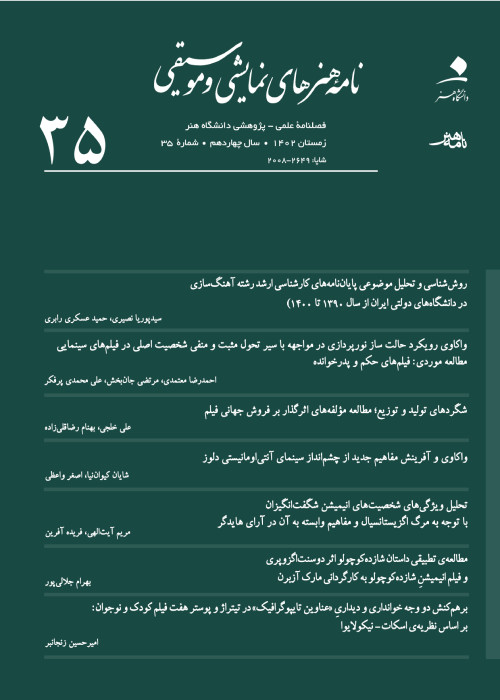An Analysis of Dionysus Opera by Wolfgang Rihm; Storytelling and Choice of Symbols
Author(s):
Abstract:
Wolfgang Rihm, the German composer could have become a poet or an artist. He chose to become a composer, expressing himself through music. Rihm is an extraordinary composer in terms of both his encyclopedic knowledge and his creative output, which also has something encyclopedic, something all-embracing about it. The same is true about his activities as a teacher (he is a professor of composition at Karlsruhe University of Music), as a writer (he has published several volumes of written works, including interviews), as a lecturer (he is a charismatic speaker), and as a representative of his craft in public bodies. Wolfgang Rihm has premiered his latest opera (Dionysus) in 2010. Similar to his previous stage-works as he claims, the scenario and libretto which is an operatic fantasy is written all by himself. In this fantasy, Rihm has brutally combined Greek Myths with Nietzsches controversial life events and thoughts in a surprisingly delusional manner. A work of immense ambition and delirious, at times up-itself complexity, it draws its text from Nietzsches Dionysian Dithyrambs the philosophers final confrontation with the ecstatic god of his own aesthetic theories, written in the years preceding his mental breakdown in Turin in 1889. Rihm in Dionysus opera utilizes music and orchestral excitations, different types of symbols in stage design and manipulated libretto, in order to express his philosophical perception of Nietzsches thoughts. Rihms approach, as one might expect, is far from naturalistic. Nietzsche, played by baritone is designated simply and impersonally as N. An ensemble of singers surrounds him, playing multiple symbolic roles, ambivalently delineated. The principal soprano is at once the mythical Dionysuss lover Ariadne and perhaps the novelist and psychologist Lou Andreas Salomé, to whom Nietzsche was briefly drawn. The leading tenor is simply called a Guest. Sometimes he designates Nietzsches friend Heinrich Köselitz, sometimes Apollo, the ostensibly rational god of Nietzschean theory though he also proves capable of the ultimate act of horror and betrayal, which finally drives N over the edge. Rihm assumes that the audience has considerable knowledge of Nietzsches work, biography and central position in specifically German-language culture. Since it is hard to separate fact from the fiction, the writers in this article try to decrypt and explain the scenario and symbols to make the opera intelligible.
Keywords:
Language:
Persian
Published:
Journal of dramatic Arts and Music, Volume:6 Issue: 11, 2016
Pages:
97 to 112
magiran.com/p1556248
دانلود و مطالعه متن این مقاله با یکی از روشهای زیر امکان پذیر است:
اشتراک شخصی
با عضویت و پرداخت آنلاین حق اشتراک یکساله به مبلغ 1,390,000ريال میتوانید 70 عنوان مطلب دانلود کنید!
اشتراک سازمانی
به کتابخانه دانشگاه یا محل کار خود پیشنهاد کنید تا اشتراک سازمانی این پایگاه را برای دسترسی نامحدود همه کاربران به متن مطالب تهیه نمایند!
توجه!
- حق عضویت دریافتی صرف حمایت از نشریات عضو و نگهداری، تکمیل و توسعه مگیران میشود.
- پرداخت حق اشتراک و دانلود مقالات اجازه بازنشر آن در سایر رسانههای چاپی و دیجیتال را به کاربر نمیدهد.
In order to view content subscription is required
Personal subscription
Subscribe magiran.com for 70 € euros via PayPal and download 70 articles during a year.
Organization subscription
Please contact us to subscribe your university or library for unlimited access!


